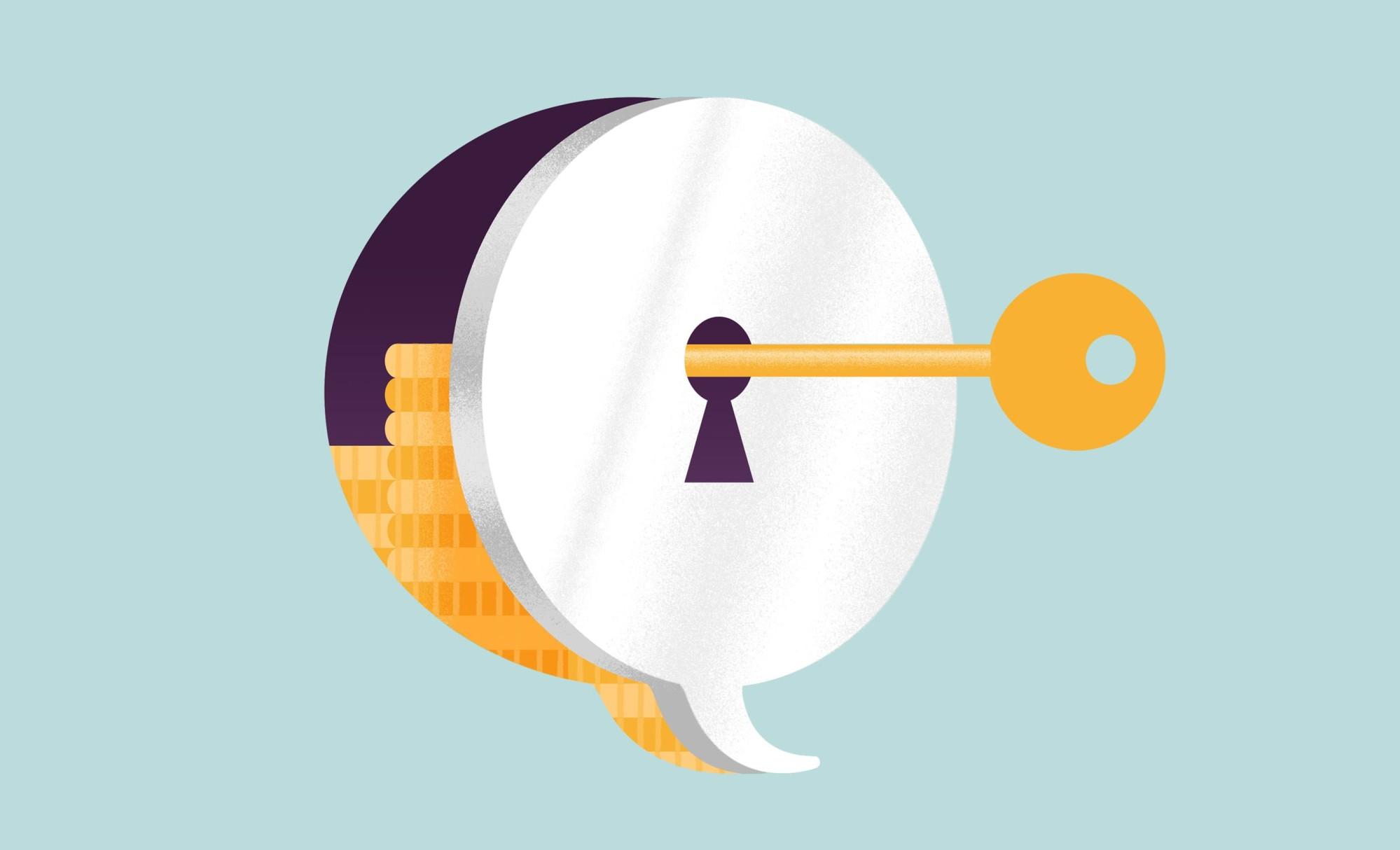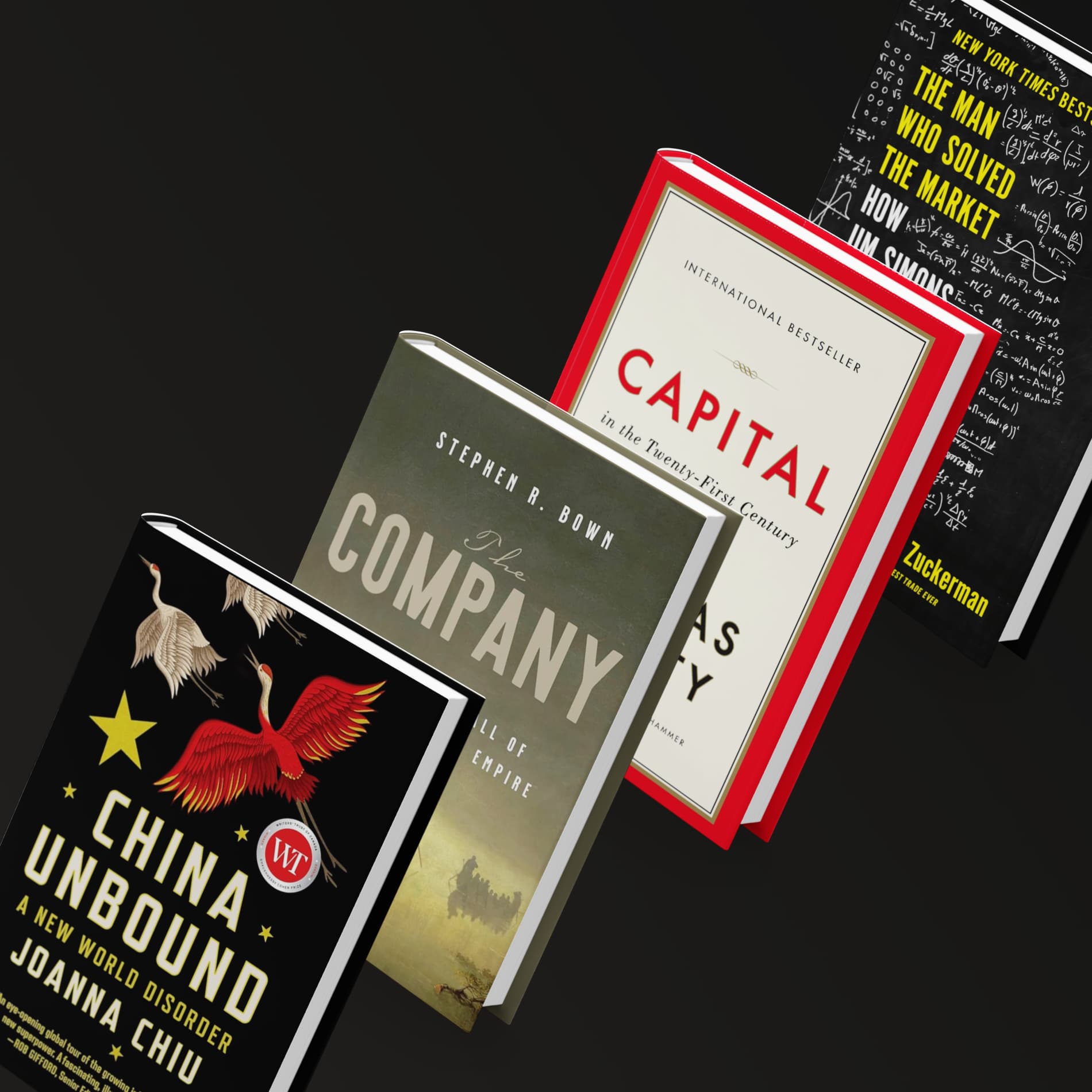
Finance for Humans
The Five Most Common Financial Questions: Answered
We rounded up our advisors and asked them which things pretty much everyone wants to know.
Wealthsimple makes powerful financial tools to help you grow and manage your money. Learn more
This is the latest installment of our “Ask Wealthsimple” series, where our financial guru Dave Nugent helps you navigate the world of investing.
“Does it makes a difference in cooking time if I roast two turkeys at once?” is not one of the five questions our advisors get asked most often. Nor is: “Frogs: reptiles or amphibians?” Or “Why is Odie the only animal in Garfield comics that can’t talk?”If you want answers to these questions, you will have to brave the internet and all its fake news (very little of which, thankfully, is about Garfield comics). But when we surveyed our advisors, there were indeed some questions they get asked way more than any others. And we figured that means there are some financial quandaries a whole lot of people are in the dark about.
Now, if you still want to call and ask your Wealthsimple advisor instead because you love the sound of her voice, we're not going to stop you. But in case you don't — or you don't even know what questions to ask! — check out our five most-asked questions, complete with really useful answers.
#1 Should I contribute to an RRSP or a TFSA?
The RRSP, naturally. Unless of course, the answer is the TFSA.
Of all the questions we get, this one's the toughest to provide a one-size-fits-all answer. Which type of account you should choose depends on three factors: How much you earn now; How much you'll likely earn in the future; And whether you'll need to access the money before you retire.
In a perfect world, you would max out both your RRSP and TFSA. RRSP contributions will lower your tax burden right now, which is great. At retirement age, on the other hand, you'll be able to withdraw from your TSFA without being taxed on your decades of gains, which is also pretty nice. But the world is not perfect — melted ice cream is not a slimming breakfast drink, and most of us don't make enough to put that kind of money aside every year. So you’re going to need to prioritize filling one up first. And in most cases, the RRSP wins.
Your objective when you invest money in one of these two types of accounts is twofold. First, to save money so you don't have to work until you drop dead. Second, to limit the amount of taxes you pay. For most of us, the way to do that is to reduce our taxable income as much as possible every year. Any dollar you put into an RRSP does just that. And since you’re free to contribute 18% of your earned income, up to a maximum of $27,830, you can reduce your income by a pretty decent chunk. Possibly even enough to bring you down to a lower tax bracket — which means you're not only reducing the amount of money you're taxed on, but the rate at which that money is taxed.

Sign up for our weekly non-boring newsletter about money, markets, and more.
By providing your email, you are consenting to receive communications from Wealthsimple Media Inc. Visit our Privacy Policy for more info, or contact us at privacy@wealthsimple.com or 80 Spadina Ave., Toronto, ON.
A TFSA’s annual maximum contribution, on the other hand, is only $6,000, and that money does not get subtracted from your income. TFSA contributions are what's called “after tax.” But that doesn't mean it's never the right answer.
Here are some rules of thumb that can help you make the choice.
• If you earn less than $50,000, a TFSA should be funded first, since you are in the lowest tax bracket and reducing your taxable income won't further lower your tax rate.
• If you make over $90,000, your tax rate goes up to 40%, so the RRSP will typically benefit you most by bringing down your taxable income.
• If you make between $50,000 and $90,000, it makes the most sense to fund them equally until you max out your TFSA.
• If you have a pension through your employer that offers matching funds, prioritize that above all else. Otherwise you're throwing away salary.
• If you think your income after retirement age will be greater than what you earn now, your money should go into your TFSA first. Because it's better to pay the lower income tax rate on that money now, than the higher rate you'll pay when you take it out.
Recommended for you
• If you think you might need the money before retirement age, TFSAs are more flexible. Though RRSP's do allow for one time penalty-free withdrawals for first time home buyers.
#2 How much should I put as a down payment on a home?
You should put down no less than 20% of the purchase price of your home as a down payment. No arguing. No exceptions. You could put considerably less cash down and still find a bank willing to loan you up to 95% of the purchase price. But, like saying yes to that last tequila shot, it’s always a bad idea. Here's why.
If you put any less than 20% down, you’ll have to pay what’s called CMHC insurance, short for Canadian Mortgage Housing Corporation insurance, which gets tacked on to the cost of your mortgage. Why? Because the CMHC is getting paid to assume the bank’s risk, and anyone who can't (or just doesn't) put at least 20% down is viewed as a bigger risk — a greater chance of not being able to afford monthly payments or defaulting. The insurance premiums are normally paid by your bank and then baked into your monthly mortgage payment, effectively making your total interest rate higher; and the more you borrow, the more you’ll pay as insurance. If you borrow the maximum amount allowable, you'll be adding 3.6% to your mortgage rate — a number so scary that you might just order the tequila shot after seeing it.
In fact, at Wealthsimple, we think people should be more careful about buying real estate, period. There have been numerous analyses that demonstrate (even without CMHC insurance) that for a lot of us, renting is a better financial decision than buying.
One more point: don't buy more house than you can afford. The debt you take on shouldn't be greater than two and a half times your income. So if your income is $100,000, you shouldn't borrow more than $250,000.
#3 If I have a chunk of money to invest, should I invest it all at once or space it out over time?
This is really a question about a concept called dollar-cost averaging. That's a term for investing your money over time, at regular intervals, with the idea that by buying into the market at many moments you'll decrease the risk that you'll buy whatever it is you're buying at a particularly high price. Studies show that investing it all at once is actually the better strategy; historically, average one-year returns for the all-in investor would yield 12.2 percent versus 8.1 percent for the dollar cost averager. Why? It's simple: investing beats not investing. You stand to lose more in future returns by having your money on the sidelines, trickling into the market, than you do from the risk of a momentary dip in the value of your investment.
But if you're worried about putting all of your money into the market anyway, it's OK to listen to that worry. Because if you panic during a downturn instead of sticking with your longterm plan — that's a risk even greater than sitting on the sidelines. The best way to answer the question of “all now” versus “a little bit at first” is for you to ask yourself a question: Even if you knew it would eventually recover, would you absolutely lose your mind if you invested everything and a week later your investment dropped in value five or even ten percent? If you answered yes, you should absolutely use dollar cost averaging, since your sanity is worth a lot, as is sticking to your plan. But if you’re more of an ice-running-through-your-veins (and less of an obsessive-balance-checking type) you should go all in.
Again, the one scenario to avoid at all costs is cutting and running — investing all your money at once, getting spooked by a downturn, and selling everything to stem further losses. That's a recipe for losing your money.
#4 What kind of returns should I expect?
OK a couple caveats here. 1) No one can predict future returns. Anyone who claims they can is a Bernie Madoff. 2) In the short-term, your returns can do anything—go up, down or sideways. It's only over the longer term that returns become predictable.
But over the course of recorded history (at least the last hundred years) a few things have been clear. One is that, over time, risky assets tend to outperform cash over time. And related to that: even among assets that are riskier than cash, some of the risker ones (like stocks) tend to outperform the less risky ones (like bonds.) It makes sense, if you think about it. If it didn't pay to take risks, no one would do it; everyone would just hold cash, nobody would invest, companies wouldn't have capital to fund their businesses and we would not be driving Teslas, or maybe even cars.
But we get it. You want a number. We'll do our best to give you a guess using history as a guide. Since 1900, equities (i.e. stocks) have earned, on average, between 5 and 6 percent annually above inflation. We think that, in the future, returns may be a bit lower than that. Why? It's complicated, but it has to do with the fact that equity prices have risen faster than corporate profits over the past century, which isn't a trend that's sustainable. So, let's account for that, and be conservative, and say history would recommend a guess of 4 to 6 percent above inflation.
But your Wealthsimple portfolio isn't only made up of stocks. That wouldn't be very diversified. We also use a mix of bonds. (If you're interested, at the moment, high quality ten-year government bonds are at about 2.5 percent in Canada, 3% in the United States.)
So, all that taken into account, a portfolio like the ones Wealthsimple builds has historically earned between 3 to 5 percent returns above inflation, depending how much risk you take.
Now be aware: no one should expect a return of exactly 3 to 5 percent year in and year out. Some years you may see much higher returns, and some years you could find yourself in negative territory. That's what risk is about! But in the long-term, markets tend to behave more predictably.
#5 How much money do I need to have in cash?
Short answer: you should always have an emergency fund tucked away in a safe, easily accessible place like our own Wealthsimple Cash account. We suggest at least three to six months of living expenses that's in a safe place, just in case something happens to prevent you from earning money for a time.
The longer answer is: how much cash you need to have on hand depends on your situation. If you’re single and kid-free and working in a relatively stable job, you might be able to get away with keeping a cushion that's on the thinner side — say, two to three months of your total living expenses. If you’re the primary earner in a family, suffer from a lack access to a generous rich uncle who's always begging to give you money, or work in a job that’s 100% commission based, you’ll want to keep considerably more on hand — say, six or even eight months of living expenses.
If you still have questions about these questions — or have completely different questions — drop us a line. Or, if you're one of those contemporary people who'd rather avoid contact with other humans, just wait for part two: the second five most asked questions!
Wealthsimple's education team is made up of writers and financial experts dedicated to making the world of finance easy to understand and not-at-all boring to read.









